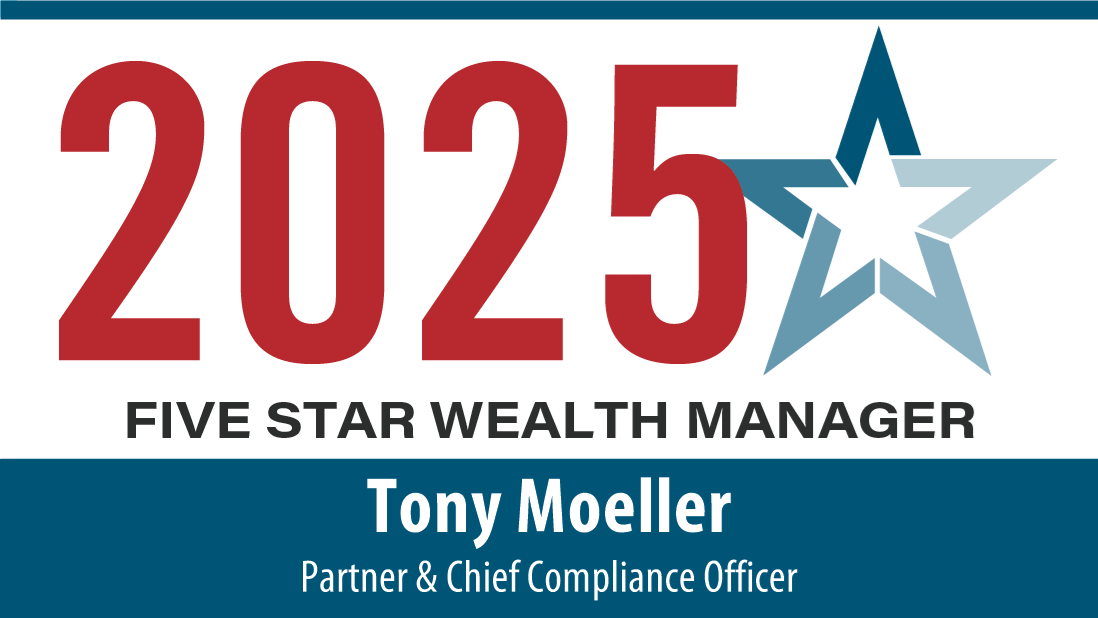Lessons to Learn From: Real-Life Estate Planning Tales From the Trenches
We’ve all heard the estate planning horror stories, known someone who spent years trying to untangle a legal mess when a loved one died, retold...
4 min read
 Tony Moeller
:
(June 7, 2024)
Tony Moeller
:
(June 7, 2024)

Three ways you can help them build a strong financial future, today.
“Pomp and Circumstance” played. Gifts were given, caps thrown. Your new college graduate is ready to start that first job, to throw themselves into the future they’ve been working toward. They’re wide-eyed, full of hope and enthusiasm.
Of course, now is also the perfect time to help your child learn the best way to build a solid financial foundation — a crucial determinant of their future success. In fact, it’s never too early for your new grad to establish good habits, as the financial decisions they make now can significantly impact their future.
As they enter their new career, they will soon work with a lot of people who may be older, have different roles, make more money. They may be living in a nice apartment, have a nice house, a nice car. Unfortunately, many new graduates struggle with this new dynamic. After all, the message they often hear is, “You deserve this. You should reward yourself.” And that's one of the hard discussions we often have with parents of young professionals: You need to be able to say, “The time's not right. You really haven't earned that luxury yet.”
Yet, the good news is you can help teach your new graduate some fundamental steps now that will allow them to build wealth and achieve the lifestyle they want in the future. When you want to build a house, for example, you have to start with a good set of blueprints. Building wealth is no different, and through some simple preparation and education, they will soon find themselves in the home of their dreams.
Time to audit the budget (and plan for a rainy day)
The first step for your new graduate? A very thorough and careful review of all their expenses and sources of income. They should look not only at their monthly payments but also at those expenses that may vary based on their geographic location, like local tax withholdings and the cost of living in the city and state they choose. It may go without saying to an experienced professional, but your child may not realize the hit to their paycheck is going to hurt much more in San Francisco than in Kansas City, for example.
Once they have a clear picture of how much they’ll take home each month, the next step is setting aside a portion of it in an emergency fund. This crucial savings tool offers a chance to pause and an opportunity to stop and think in situations like, “My air conditioner’s broken. Can it be repaired? Do I need to replace it? What are my options?” Having that fund will give them time to evaluate the best course of action. Without it, it’s easy to feel backed into a corner where they’re more likely to make an emotional reaction (which is often the wrong decision).
Everyone should shoot to have at least three (preferably six) months’ of salary set aside. If they get hit with a major expense (like a pricey car repair), they can at least handle that without living paycheck to paycheck.
Look more closely at student loan debt
A lot of recent attention has been focused on student loans, and with good reason: While we finally saw the first-ever decline in student loan debt in 2023, there are still 43.2 million adults carrying debt from a federal student loan, with an average balance of more than $37,000. We often see people with student loans who want to wipe out all their debt right out of the box. While that’s never the best idea, there are some basic steps every borrower should take:
Don’t sleep on retirement (even at this young age)
For many young professionals, it feels premature to worry about retirement at this point in their career. But research shows the younger the better – like age 25 or earlier – if you want to have enough to retire comfortably. And considering the average retirement account in this country holds only about $113,000, we’re not doing well to achieve the goal of $1 to $2 million (preferably more) at retirement.
We encourage our clients to contribute at least 15% to their 401(k), or at least up to the employer match. When I was much younger, the rule of thumb was 10%, but now it's at least 15% (and some people are actually pushing 20%). Once they have a good handle on their income and expenses, we encourage socking away as much as they can. Then, once they’ve got that foundation, we can start talking about the allocation in the 401(k): Do they have extra money for a Roth? Are there certain other things they want to pay off? Do they have money set aside for a down payment on a house? If we start with the fundamentals, we can layer all those other options on top.
Encourage patience now for payoff later
Starting that first job, launching that career — that’s exciting. But it also requires a little common sense. After all, money is like a shovel. It can be used to plant a garden or it can dig a hole so deep you can’t climb out.
With a little guidance, a healthy dose of willpower and some delayed gratification, you can help your new graduate start their future on the right foot — and travel down a smooth road ahead.
-----
Tony Moeller is a partner, senior advisor and chief compliance officer for MN Wealth, and a dedicated professional with more than 35 years of experience providing a personalized approach to investing. Drawing from his past accounting experience and fee-only environment, Tony can create investment recommendations and manage funds completely objectively. Tony has been awarded the Five Star Wealth Manager Award multiple times as well as Best in Client Satisfaction for the Kansas City metro area.

We’ve all heard the estate planning horror stories, known someone who spent years trying to untangle a legal mess when a loved one died, retold...

If once is happenstance and twice is coincidence, then 13 times should probably be called pattern — and just something Tony Moeller’s many satisfied...

When it comes to starting their careers and lives, many college graduates face a significant roadblock: a subpar credit score. With an average score...